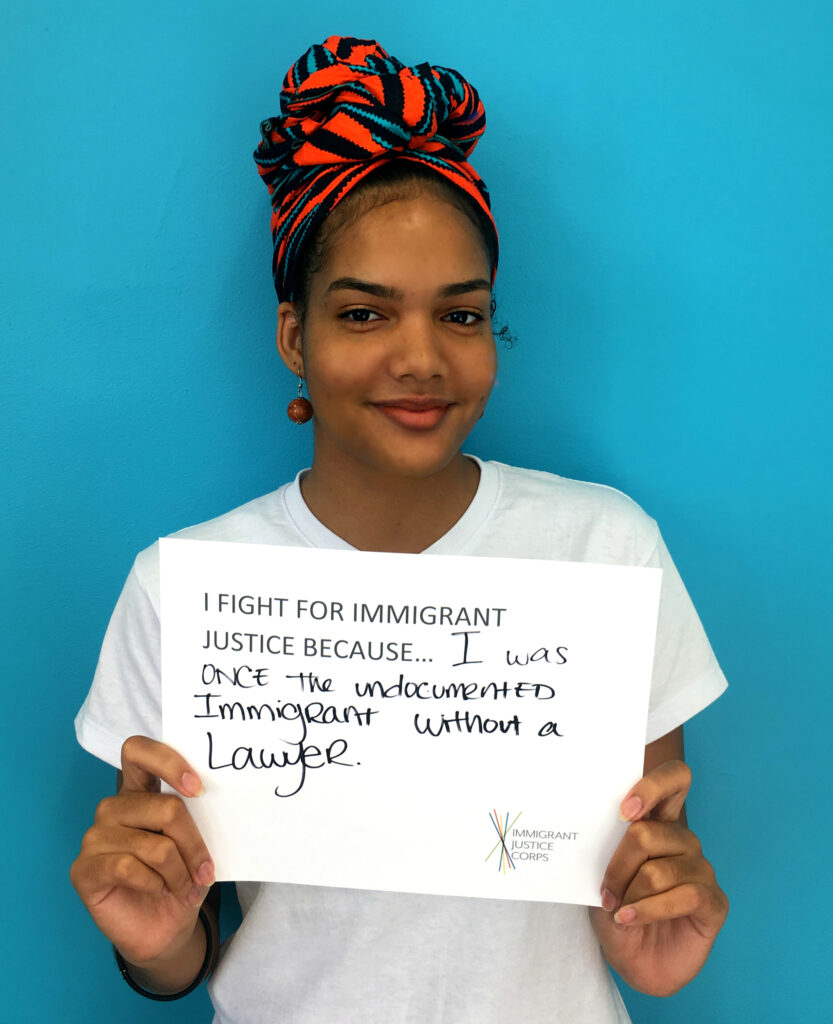Fellow feature: Sarah Subramanian
Sarah Subramanian, a 2023 Justice Fellow in Tennessee, shares how she has been setting strict work-life boundaries, something she wishes she had known on her first day, and something she thinks people would be surprised to know about her job.
What was something you wish you had known on your first day?
To some extent, you do know how unfair the system is, but I think I wish I’d known how hard it is, even on lawyers. Government counsel gets a lot more chances than we do. It’s both hard on our clients, but it’s also hard on us – the system demands perfection which is unrealistic and really not how it works. People just aren’t perfect. And sometimes our clients will make mistakes, and it’s really frustrating to have to deal with that, but also know that the court is expecting perfection from you as well. That’s the hard part.
What strategies have you been using to cope with that stress and disconnect from the job?
I have very strict boundaries for myself. I leave the office, and then I do not think about work. Sometimes I have clients call me, but most of my clients know not to call me outside of office hours because unless there’s a deadline coming up, I’m not going to pick up. And they’ve actually been very respectful of it because they understand that I have multiple cases and if I just answered client calls after hours, I would not have a life. And at 4 p.m., I shut my laptop. There are times when I have to work over because things happen, but most days, I do not. And I don’t open my laptop on the weekends. So that’s helped. Also talking to other IJC Fellows has helped. There’s another Fellow in the same area as me, and it has been really nice just talking through things and sharing our frustrations and being like, ‘yeah, the system is so messed up.’
What is something people would be surprised to know about your job?
I think people would probably be surprised by how hard it is to come to the United States and get asylum. It is not an easy thing. I don’t think I even fully understand how hard it is, and I work with these clients day in and day out. It is really hard to cross the border. People aren’t just coming because it’s their way of getting a vacation, they are doing it to save themselves from a terrible life, and it is really unfortunate how badly our laws treat them. I’ve worked with criminal defense attorneys, and they always say, ‘Wait, what do you mean? They can just do that?’ And I’m like, ‘Yeah, they can just hold them, that’s a thing that they can do.’ People are always surprised by how few due process rights incoming immigrants have.
What has been the most challenging part of the Fellowship so far?
I think the most challenging part is just how harsh the system is on my clients. I think judges, especially in the south, are a lot harsher. It feels like it’s always an uphill battle. Even when I have a strong case and great evidence, I don’t really know how the judge is going to rule. It’s a very hard system, and it’s very hard to win. And I think clients also don’t always understand the laws and how difficult it is. It’s so much stricter than people realize.
